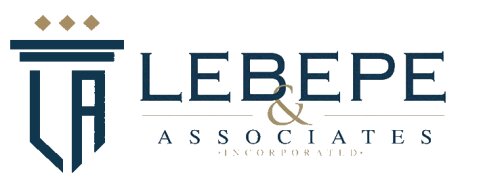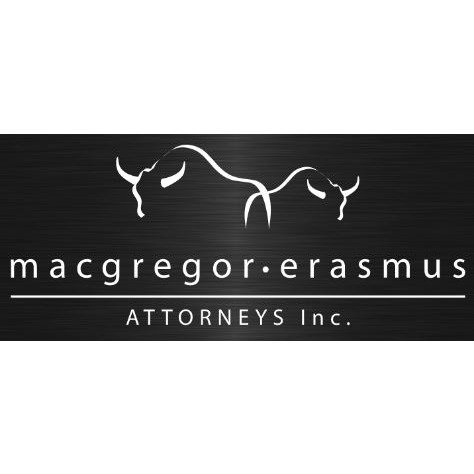Best Business Lawyers in South Africa
Share your needs with us, get contacted by law firms.
Free. Takes 2 min.
Or refine your search by selecting a city:
List of the best lawyers in South Africa
About Business Law in South Africa
South Africa boasts a dynamic and evolving business landscape, fueled by a mixed economy that integrates both state-owned and private enterprises. The country's legal system is based on a blend of English, Dutch, and indigenous laws, which together provide a robust legal framework for business operations. Business law in South Africa encompasses a wide array of areas including corporate law, competition law, consumer protection, labor law, and taxation. With ongoing governmental reforms aimed at economic growth, understanding the nuances of business law is crucial for both local and international business ventures.
Why You May Need a Lawyer
Establishing and growing a business in South Africa can be a complex endeavor, often necessitating legal expertise to navigate the regulatory environment. Common situations where business owners may require legal assistance include:
- Formation and registration of new companies
- Drafting and reviewing contracts and business agreements
- Mergers, acquisitions, and structural reorganizations
- Resolving shareholder disputes
- Compliance with employment and labor laws
- Intellectual property protection
- Litigation and dispute resolution
- Navigating tax law and tax disputes
- Dealing with insolvency and business rescue proceedings
- Understanding and applying consumer protection laws
Local Laws Overview
Key legislation relevant to business operations in South Africa includes:
- Companies Act: Governs the formation and management of companies, focusing on corporate governance and director responsibilities.
- Consumer Protection Act: Protects consumer rights and promotes fair business practices.
- Competition Act: Regulates competitive practices and prohibits anti-competitive behavior.
- Labor Relations Act: Balances employer and employee rights, promoting fair labor practices and collective bargaining.
- Broad-Based Black Economic Empowerment (BBBEE) Act: Aims to address historical inequalities, promoting economic participation of black South Africans.
- Tax Legislation: Encompasses the Income Tax Act and the Value-Added Tax (VAT) Act, which dictate tax obligations for businesses.
Frequently Asked Questions
1. What types of business structures are available in South Africa?
Business structures in South Africa include sole proprietorships, partnerships, private companies (Pty Ltd), public companies (Ltd), and cooperatives.
2. How can I register a business in South Africa?
You can register a business through the Companies and Intellectual Property Commission (CIPC), either online or with assistance from a legal advisor.
3. What are the responsibilities of company directors under the Companies Act?
Directors must act in good faith, with care and diligence, and avoid conflicts of interest. They must ensure compliance with statutory duties and the affairs of the company are conducted lawfully.
4. How does the BBBEE scorecard impact businesses?
The BBBEE scorecard measures a company's contribution to economic transformation and is critical for tendering for government contracts and maintaining competitiveness.
5. What are the key taxes affecting businesses?
Businesses are subject to corporate income tax, VAT, and potentially dividend withholding tax. Employees' taxes and contributions are also significant.
6. Why are shareholder agreements important?
Shareholder agreements protect the rights and responsibilities of shareholders, outline dispute resolution mechanisms, and provide clarity on key business operations.
7. How do I protect my business's intellectual property?
You can protect intellectual property through the registration of patents, trademarks, and copyrights. It is advisable to seek legal help to ensure comprehensive protection.
8. What obligations do businesses have under the Consumer Protection Act?
Businesses must ensure fair, transparent, and equitable treatment of consumers, provide quality goods and services, and honor consumer rights.
9. How can businesses stay compliant with labor laws?
Compliance with labor laws involves adhering to the Basic Conditions of Employment Act, the Employment Equity Act, and the Labor Relations Act, among others, usually with the assistance of HR and legal experts.
10. What should I do if my business is facing financial distress?
Seek early legal advice to explore options such as restructuring, business rescue, or liquidation. Legal professionals can guide you through these processes.
Additional Resources
For those in need of legal advice, consider the following resources:
- Companies and Intellectual Property Commission (CIPC): Provides services related to business registration and intellectual property.
- South African Revenue Service (SARS): Offers guidelines on taxation and compliance for businesses.
- Department of Trade, Industry and Competition (DTIC): Responsible for industrial development and trade policy in South Africa.
- National Consumer Tribunal (NCT): Adjudicates consumer-related disputes and ensures compliance with consumer law.
- The Law Society of South Africa: Can help locate qualified legal practitioners with expertise in business law.
Next Steps
If you require legal assistance in the field of business, start by consulting with a qualified business lawyer who understands the local legal framework. Conduct research to find a lawyer or law firm that has a strong track record in handling business-related legal matters. Schedule a consultation to discuss your specific needs and ensure that you choose a legal partner who aligns with your business objectives.
Additionally, staying informed and updated about changes in business law can help you maintain compliance and avoid potential legal challenges. Engaging with local business networks or chambers of commerce may also provide valuable insights and resources relevant to your industry.
Lawzana helps you find the best lawyers and law firms in South Africa through a curated and pre-screened list of qualified legal professionals. Our platform offers rankings and detailed profiles of attorneys and law firms, allowing you to compare based on practice areas, including Business, experience, and client feedback.
Each profile includes a description of the firm's areas of practice, client reviews, team members and partners, year of establishment, spoken languages, office locations, contact information, social media presence, and any published articles or resources. Most firms on our platform speak English and are experienced in both local and international legal matters.
Get a quote from top-rated law firms in South Africa — quickly, securely, and without unnecessary hassle.
Disclaimer:
The information provided on this page is for general informational purposes only and does not constitute legal advice. While we strive to ensure the accuracy and relevance of the content, legal information may change over time, and interpretations of the law can vary. You should always consult with a qualified legal professional for advice specific to your situation.
We disclaim all liability for actions taken or not taken based on the content of this page. If you believe any information is incorrect or outdated, please contact us, and we will review and update it where appropriate.
Browse business law firms by service in South Africa
South Africa Attorneys in related practice areas.
Browse business law firms by city in South Africa
Refine your search by selecting a city.

















